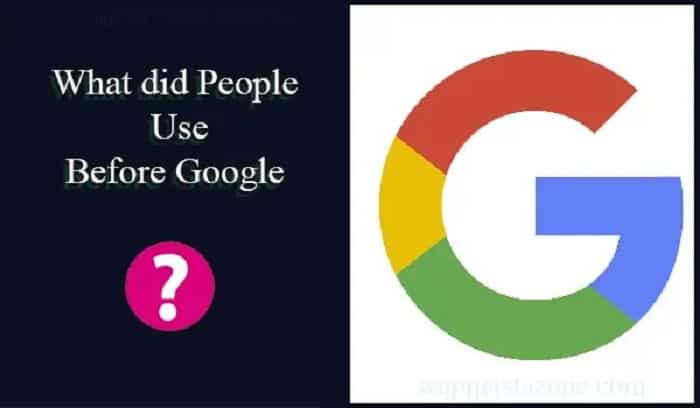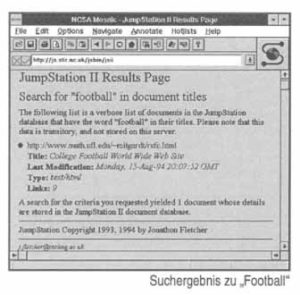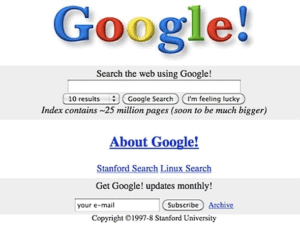
search engine before google, search engines before google, first search engine
What did people use before google? Apparently, something was in place before the Google search engine came into existence. The tools people/users used in the early 70, 80, and 90s were primitive and were not really advanced until the late 90s.
The pre-Web Internet at first didn’t have search tools until the late 1980s when the Internet became searchable. Some of the earlier search tools are Archie, Veronica, Gopher, etc.
Discover: Top Affiliate Programs to Join and Start Earning
Archie Search Engine: – First search engine
Archie was the first major search advance in the early 90s which made it possible for users to search through a site’s file directories. Veronica was the second search tool that came after Archie. Veronica was established by the University of Nevada System Computing Services which tried to provide Archie-style searches for plain text files.
Gopher Search Engine:
It came after Archie and it was more advanced. Gopher made it possible for users to search through online databases and text files. With Archie, you really had to have a clue that a file was somewhere on a given site. With Gopher, you could simply search and let the server worry about finding which site had the information you wanted.
Also Read: 10 Signs of a Malware Infection on your Computer
WAIS Search Engine:
By 1993, while, Web was also being created. WAIS (Wide Area Information System) was one of the early Internet search engines, which later goes on to be more important than the Web. However, WAIS, Gopher, Archie, and Veronica now exist only in internet history.
Other search engines that played a big role include;
JumpStation:

JumpStation was the first WWW search engine that behaved, and appeared to the user, the way current web search engines do. It started indexing on 12 December 1993 and was announced on the Mosaic “What’s New” webpage on 21 December 1993. It was hosted at the University of Stirling in Scotland. the Repository-Based Software Engineering (RBSE) spider—used automatic programs, called robots or spiders, to request webpages and then report what they found to a database. However, those first spiders weren’t that useful.
Yahoo:

Yahoo was a virtual library in its early days. which was more of a replicate of WWW created by Tim Berners-Lee. So, Yahoo wasn’t really a search engine in the early 90s. It was human-assembled catalogs of useful web links. then, it allows you to submit your own web pages to Yahoo, for instance, and suggest in which category it should be included. However, Yahoo has since then grown bigger and is still in existence today.

WebCrawler also came into existence in 1994. It made it possible to Search inside webpages if you knew the exact name of the website you were searching for. WebCrawler is still in existence but has been largely forgotten.
Also read: 9 Most Deadliest Computer Viruses that Stood the Test of Time
Lycos:

Lycos was the first search engine to introduce proximity searching. It was almost certainly the first search engine to have a full-page search for more than a million pages. but it was remarkable in mid-1994.
Inktomi:
appeared in 1996, and briefly enjoyed a burst of popularity. Eventually, it was bought out by Yahoo in 2003.
AltaVista:

AltaVista was the first really fast search engine that also covered much of the Web. It also gave users the first successful Boolean search options.
Ask:

Ask Jeeves now Ask.com was also popular in the early 90s and is still in existence. it became famous for attempting to support search by natural language. Ask Jeeves did better with this question style than its competitors.
While most of them were fading, Google came into existence in 1998, which would go on to be the world’s most famous and widely used search engine till today.

Also read: Top 6 Online Money Transfer Websites and Comparison
How did google overshadow the earlier search engines, what exactly did google do better?
Google solved the most complex problems that the earlier search engines couldn’t solve. Google did a much better job than its rivals of making search easy, more comprehensive, and user-friendly. One of Google’s success points was PageRank. With PageRank, Google was able to rate the relevancy of webpages to queries, based not only on whether the pages contain the search terms (the technique used by all search engines), but also on how many relevant pages link to them. This basic concept was a groundbreaking advance at the time. Today, Google uses a more complex system algorithm and artificial intelligence to display results. It has managed to stay ahead of its other competitors like ask, yahoo, and bing.
Google has stayed at the top and is not likely to lose its position in decades to come. Google was founded by Larry Page and Sergey Brin, in which Sundar Pichai is now the CEO of Google.



